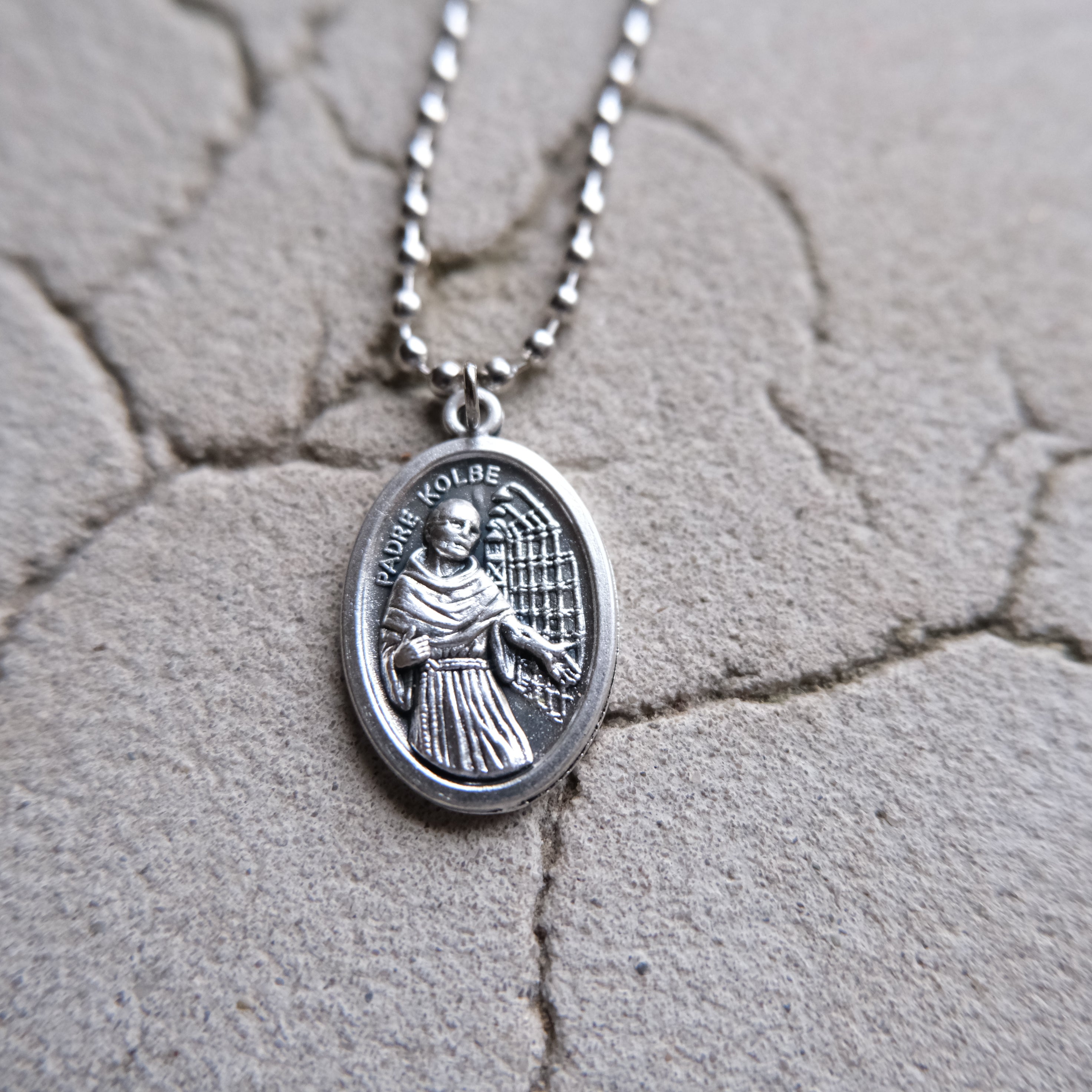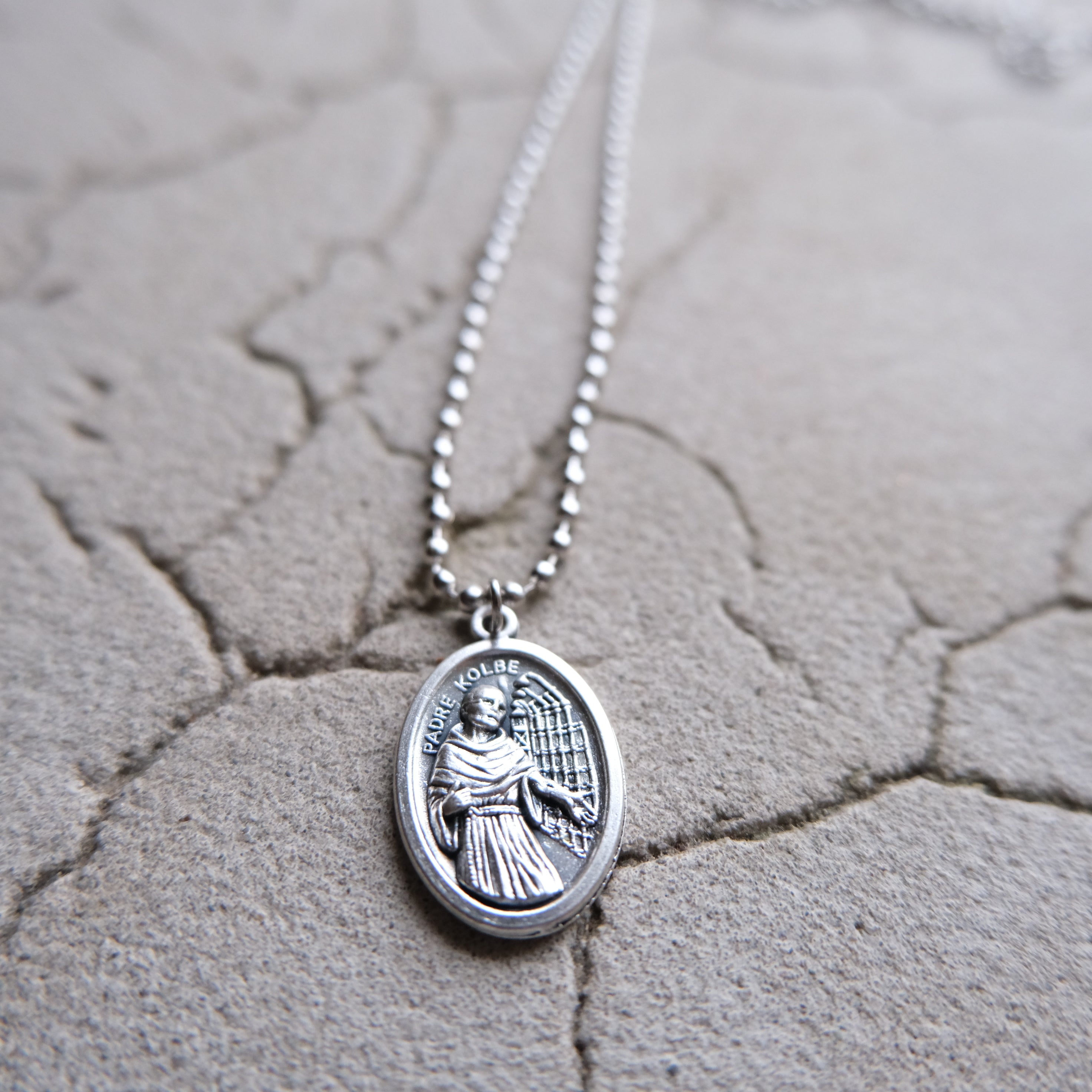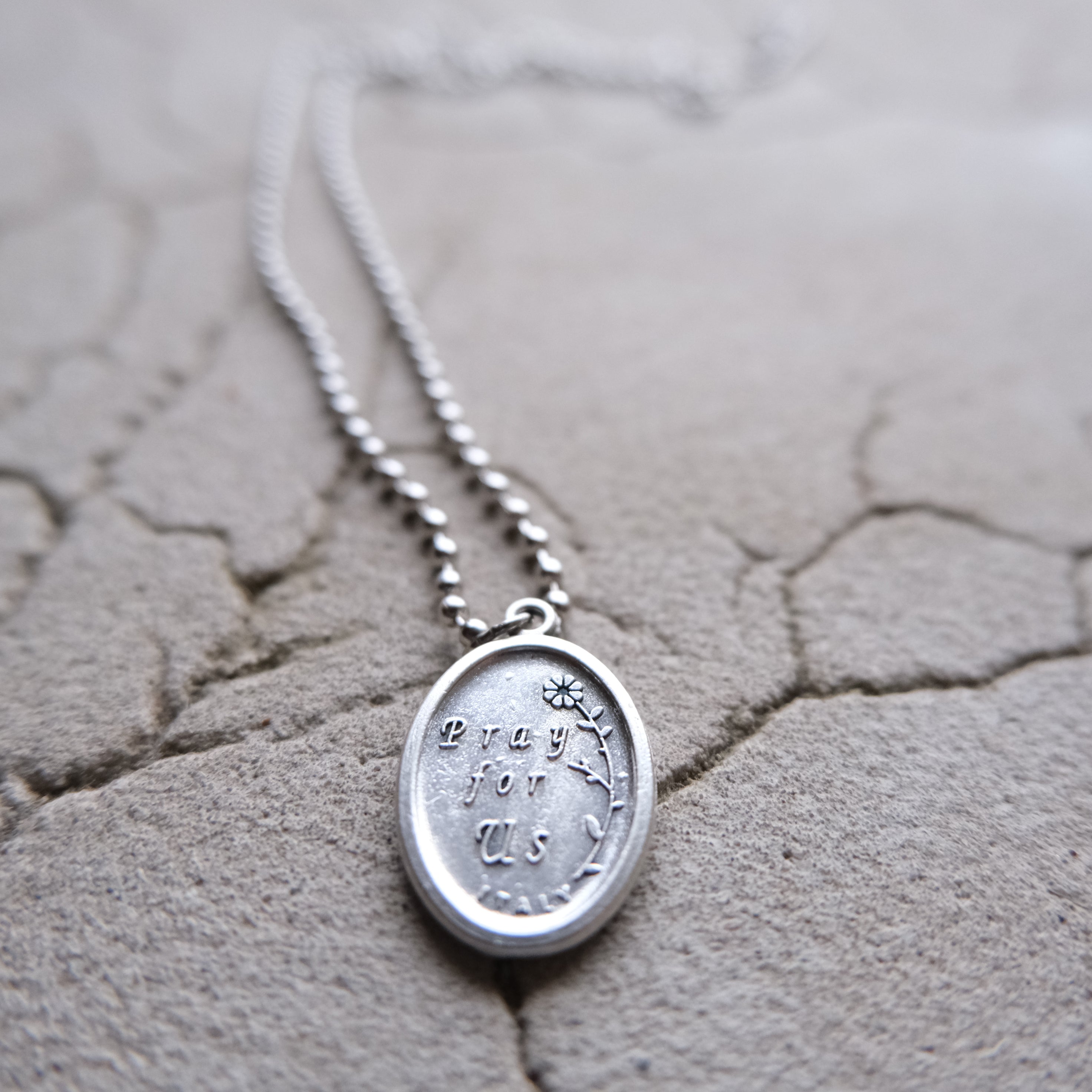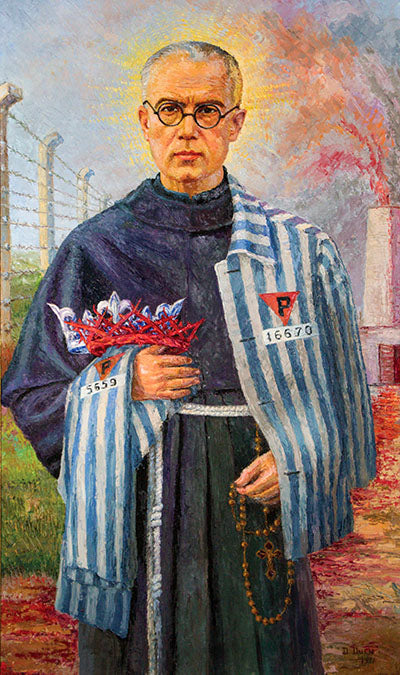



Saint Maximilian Kolbe medallion
Saint Maximilian Kolbe pendant.
Patron saint of amateur radio operators, drug addicts, political prisoners, families, journalists, and prisoners.
"That night I asked the Mother of God what was to become of me. Then she came to me holding two crowns, one white, the other red. She asked me if I was willing to accept either of these crowns. The white one meant that I should persevere in purity and the red that I should become a martyr. I said that I would accept them both." St. Maximilian Kolbe
Saint Maximilian Kolbe, born Raymond Kolbe, was a Polish Conventual Franciscan friar who lived during the early 20th century. He is perhaps best known for his heroic sacrifice at Auschwitz, where he volunteered to take the place of a fellow prisoner condemned to death.
Maximilian Kolbe was born on January 8, 1894, in Zduńska Wola, Poland, which was then part of the Russian Empire. From a young age, he showed great devotion to the Virgin Mary, and at the age of 12, he had a vision of her offering him two crowns—one white, symbolizing purity, and one red, symbolizing martyrdom.
At the age of 16, Kolbe entered the Conventual Franciscan novitiate in Lwów (now Lviv, Ukraine), taking the religious name Maximilian. He went on to study theology and was ordained a priest in 1918. Throughout his priesthood, Kolbe remained deeply devoted to the Virgin Mary and sought to spread the message of her Immaculate Conception.
In 1927, Kolbe founded the Militia Immaculatae (the Knights of the Immaculata), a movement dedicated to promoting Marian consecration and evangelization. Under his leadership, the movement grew rapidly and spread throughout Poland and beyond.
In 1930, Kolbe founded Niepokalanów, a large monastery and publishing house near Warsaw, which became one of the largest Franciscan centers in the world. The monastery produced a newspaper, "Knight of the Immaculata," and a monthly periodical, "The Little Daily." Kolbe also established a radio station to spread the Gospel.
During World War II, Niepokalanów became a refuge for thousands of Polish refugees, including Jews fleeing persecution. Kolbe and his friars provided shelter, food, and spiritual support to those in need, risking their own lives to help others.
In 1941, Kolbe was arrested by the German Gestapo and sent to the Auschwitz concentration camp. There, he continued to minister to his fellow prisoners, offering them comfort and hope in the midst of unimaginable suffering.
In July 1941, a prisoner escaped from Auschwitz, prompting the camp authorities to select 10 men to be starved to death as a deterrent to further escape attempts. One of the men chosen was Franciszek Gajowniczek, who cried out in despair for his wife and children. In a remarkable act of selflessness, Kolbe volunteered to take Gajowniczek's place.
For two weeks, Kolbe endured starvation and dehydration in a cramped cell, leading prayers and comforting his fellow prisoners until he finally succumbed to death by lethal injection on August 14, 1941. His body was cremated the following day.
Maximilian Kolbe was canonized as a saint by Pope John Paul II on October 10, 1982, and is recognized as a martyr of charity.
Choose options



